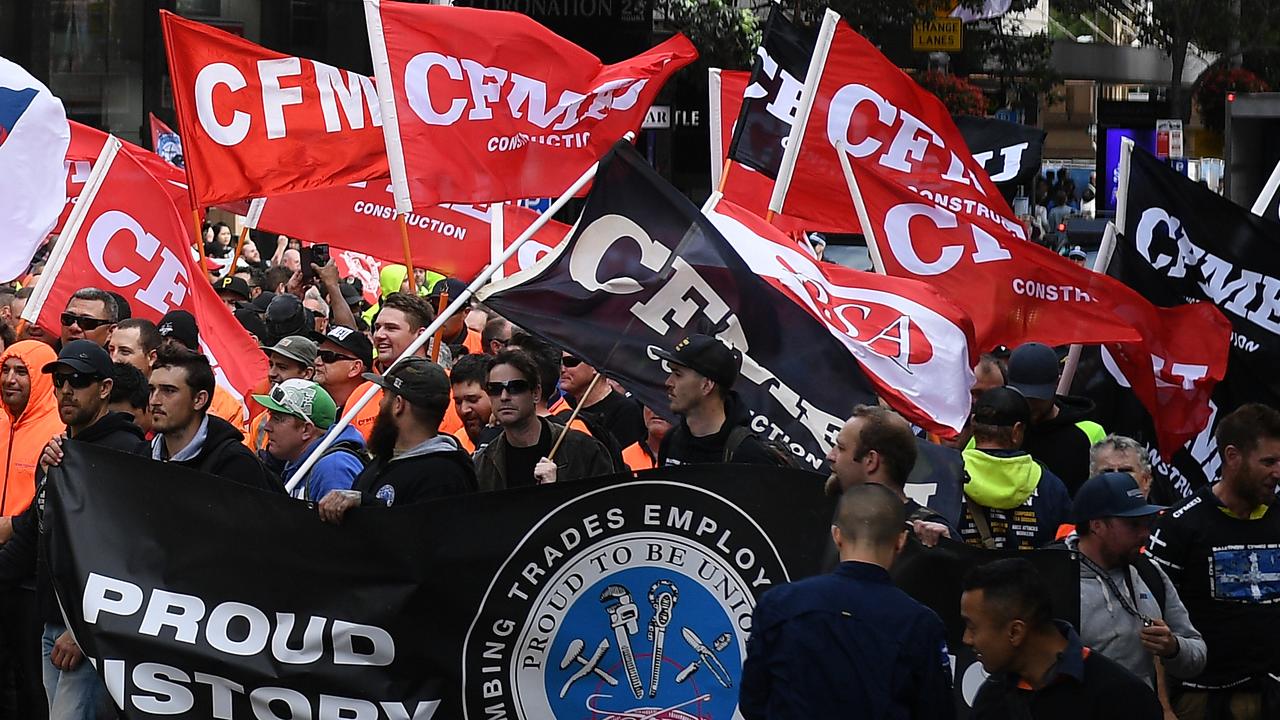‘Huge’ pay win for licensed clubs employees
The Fair Work Commission has rejected a bid to reduce penalty rates paid to thousands of employees working in licensed clubs.

The Fair Work Commission has rejected an employer bid to reduce penalty rates paid to thousands of employees working in licensed clubs, finding the cuts would cause “significant economic harm” to permanent workers engaged on weekend and public holidays.
Clubs Australia, which represents 6500 licensed clubs in Australia and New Zealand including bowls, golf, RSL, ethnic, community and workers clubs, wanted the Registered and Licensed Clubs award revoked and workers covered by the Hospitality Award which has lower weekend and public holiday penalty rates.
In its decision today, a commission full bench said the lower penalty rates would have seen full-time and part-time clubs employees incurring pay cuts of four to five per cent if they worked Saturdays, and eight to 10 per cent if they worked Saturdays and Sundays.
The commission said the case by Clubs Australia was weaker than arguments it made in a previous application to cut penalty rates.
“The proposed reduction in penalty rates would inflict significant economic harm on permanent clubs employees who regularly work on weekends and public holidays, taking into account the high degree of award dependence in the clubs sector,’’ the full bench, headed by vice president Adam Hatcher, said.
“There is no evidence that the current penalty rates regime causes clubs not to open or to restrict their activities on weekends and public holidays.
“There is no evidence that a reduction in penalty rates would cause any discernible increase in employment numbers or hours worked, nor is there any logical basis to conclude this would happen because clubs already maximise their activities and service offerings during weekends and public holidays to meet peak customer demand.
“To the extent that a significant proportion of clubs may be characterised as being in financial distress, there is no evidence that penalty rates were a causal factor or that a reduction in penalty rates would remove them from that position or even provide financial relief of any significance.”
‘Huge win’: Union
United Voice, the union representing workers in clubs, said the decision was a huge win.
“No club worker in Australia deserved a pay cut of up to $5000 a year. This decision protects the penalty rates of 42,000 clubs workers across Australia,’’ the union said.
“This is a huge win for the tens of thousands of clubs workers whose wages have been under attack by Scott Morrison and business groups.”
The commission said granting the application “would cause significant financial loss to the large majority of full-time and part-time employees in the clubs industry who work on weekends and public holidays”.
“Some of these employees are already low paid, and the proposed penalty rate cuts may push many employees who are not currently low paid because they receive weekend penalty rates below the benchmark for low paid employees,’’ it said.
The commission said the proposal by Clubs Australia to phase in the reductions and coincide them with annual minimum wage increases would not significantly ameliorate the impact on workers.
For workers employed on Saturday and Sunday, the real value of their wage “would be highly likely to fall significantly over the proposed transitional period”.
Clubs Australia did not contend that a reduction in penalty rates would allow clubs to offer more hours of work to affected employees. “To the extent that there was any evidence on this topic at all, it suggested otherwise,’’ the commission said.
It said there was no evidence that the existing penalty rates in the Clubs Award has competitively disadvantaged the clubs sector or caused any club to suffer financial distress.
“We likewise find that there is no evidence that a reduction to the penalty rates applicable to the clubs sector would result in any discernible increase in employment or rostered hours or would relieve the position of any club currently in financial distress, and it may be the case that such a reduction would disadvantage the capacity of clubs to retain and recruit quality staff,’’ it said.
There are differences of significance in the age profile, educational attainments and student population of the clubs and hospitality workforces.
The hospitality workforce is significantly younger, with a much higher proportion of workers aged under 30. It has a higher proportion of employees who have completed Year 12, and a higher proportion of full-time students.
“It is likely that these differences all point to there being a much higher proportion of young persons engaged in tertiary studies who have secondary employment in the general hospitality sector than in the clubs sector,’’ it said.
CAI ‘surprised’ by decision
Chris Mossman, executive director of Clubs Australia Industrial said he was surprised by the decision given the commission accepted club staff perform exactly the same work as staff in pubs, restaurants and other hospitality businesses.
“CAI has never opposed weekend penalty rates,’’ Mr Mossman said. “The award application was made in order to give clubs the choice to pay their staff the same as any other local hospitality business, rather than having to pay more money for the same work.
“The decision means small, struggling bowling clubs and RSLs in regional communities will be forced to pay their staff higher penalty rates than Sydney’s Star Casino.”
He said many larger clubs paid workers above award rates because they wanted to attract and retain the best workers.
“CAI is mindful that the federal Labor Party wishes to increase penalty rates. It is hoped that, were this to occur, it would allow clubs to operate on a level playing field with other hospitality businesses.”
Opposition workplace relations spokesman Brendan O’Connor welcomed the commission decision.
“Labor has consistently warned of the risk that the cuts to penalty rates under the retail, hospitality, fast food, restaurant and pharmacy awards will spread to other workers,’’ he said.
“Under Morrison and his Liberals, more Australian workers are facing potential pay cuts as their penalty rates come under threat.”




To join the conversation, please log in. Don't have an account? Register
Join the conversation, you are commenting as Logout